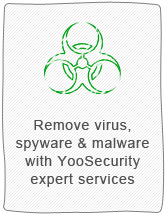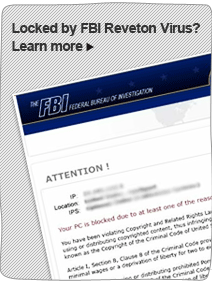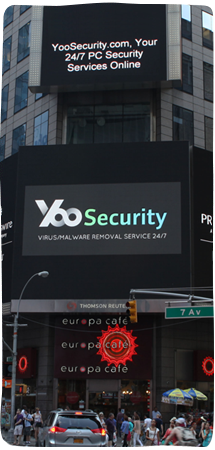Computer blocked by Ministry of Public Safety Canada virus warning message? Do you find this pop up warning quite legitimate and scary? Browser completely locked up with the Ministry of Public Safety Canada Ukash scam virus? Have you violated any laws of Canada to cause this block? Do people from Canada get this similar block lately? How to unlock computer from this block? Is there a fine involved like $100 CAD if you want to unlock PC from Ministry of Public Safety Canada pop up? How to unblock browser from fake Canadian police block page? I have a scam ministry of public safety Canada on mac, it blocked Ottawa police web browser, when i have the ministry of safety Canada virus infecting my mac computer, how to remove ministry of public safety Canada on mac? Well, Ministry of Public Safety Canada scam is one of the infamous ransomware which attacks computers in Canada. By distinguishing different IP addresses, the virus can be more specific to different users in different states. Then the name of this virus will include the particular name of the state, such as RCMP virus, Canadian Association of Chiefs of Police virus, etc. The virus can be installed by Trojan without your consent, and hides deeply in your computer system. It is not easy to delete it, even for most of anti-virus software.
Ministry of Public Safety Canada Virus Blocked Computer/Browser for CAD $100 Fine – How to Unlock It From PC or Mac Book Pro?
Does Ministry of Public Safety Canada virus pop up on computers and block the entire screens with a deceitful and threatening appearance? As a matter of fact, this Canadian police warning (also known as Canadian Association of Chiefs of Police virus – CACP virus) is fake and created by cyber criminals to scam computer users especially those from Canadian areas. It’s categorized as a computer ransomware which has become a very common phenomenon in these days. Computer users from all over the world can encounter all kinds of different ransomware blocking their computers and asking certain amount of fines to unlock the PCs. For instance, computer users mainly from the United States can be targeted by the United States Courts virus and those from European areas can be attacked by the Metropolitan Police Ukash scam. PC users who come from Canada can be the main target for this Ministry of Public Safety Canada virus to attack. What’s worse, with the help of numerous malicious web sites and freeware on the Internet, hackers can distribute this virus into those web pages and free programs, in this case, people from outside of Canada can also have a great risk to be attacked by this virus. Once innocent people’s computers get blocked by this virus, PC users can be asked to pay CAD $100 via Ukash to unblock their computers in a limited time. So that they can avoid be punished by the police. Do not trust this pop up message because it’s a cyber scam virus.
Once this Ministry of Public Safety Canada virus pops up on the target computers, it can block the whole system or some specific browsers. Computer users can be accused by their online activities for watching or distributing pornography contents, etc. How can this popup spread to so many computers? Generally, this virus can be spread via the Internet. Cyber criminals who create this virus can also hack many websites and some of them can even be very popular sites. After hacking into the websites servers, hackers implant this virus into the servers. Once people visit those infected websites, this virus be downloaded automatically as cache files for the websites. Also, cyber criminals can use many other free programs to cover this virus. During the installation process, this virus can infiltrate the target computers without approval. The whole invasion cannot be detected and that is the reason why so many victims don’t have a clear idea about when and how it comes into their computers. Besides from that, cyber hackers can also use the spam E-mail attachments and many other unauthorized resources online to spread this fake warning virus.
When the virus is installed successfully on your computer, this Canadian Association of Chiefs of Police – Ministry of Public Safety Canada virus message will pop up all of a sudden blocking the entire screen. For Mac book users, they will get the similar block on their browsers asking for CAD $100 to unblock. The ransomware can even set itself as a start-up program which will enable its immediate pop up whenever PC starts. Ever since this fake Canadian police warning pops up, you won’t be able to access anything on the computer not even Windows Task Manager. This scam virus will then elaborate the legal regulations you have violated and list the solution to unlock PC as well. To unlock your computer screen from this Ministry of Public Safety Canada virus, according to the warning message, a fine of CAD $100 in total will be requested through Ukash or PaySafeCard payment. “Amount of fine is CAD $100. You can pay a fine Ukash or PaySafeCard vouchers.” And if you cannot make this payment in the required time period, you will be thrown into prison for violation of the laws which listed on the warning page. By all means this fake Canadian police warning message is trying to scare you and get you to pay so that cyber criminals can benefit. However, paying the CAD $100 fine is definitely not a wise option to unlock your PC from Ministry of Public Safety Canada Ukash scam malware. Not only your PC will remain blocked by this message, but you will be helping cyber criminals benefit somehow.
Suggestions: To unlock PC and stop cyber criminals from scamming you, contact YooSecurity Online Experts for further information in removing this fake Canadian police warning message if you have no clue of doing it yourself.

A Screen-shot of This Fake Ministry of Public Safety Canada Ukash Block Message
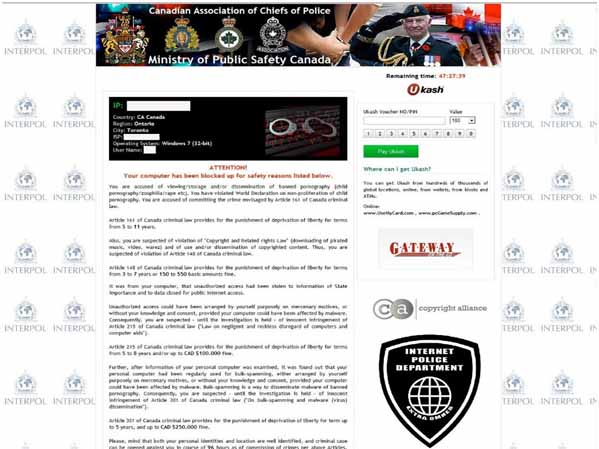
When computer is under the attack of this Ministry of Public Safety Canada virus, you will get a block screen similar with the above screen shot. To make it even more real and legit in appearance, the scam virus will list your personal details on the screen including your IP address, location, computer system and user name. Webcams can even be automatically turned on by this virus if there’s one attached to your computer pretending to capture your personal images and record your behaviors. We can conclude that all the illegal issues are similar among this kind of computer ransomware. The reasons of you getting a block screen often involve online activities including watching or distributing banned pornography. Many victims of this virus haven’t done anything mentioned in the message but still get this block screen. When PC users were threatened by it, they are more willing to pay the 100$ CAD fine via Ukash hoping to unlock their PCs and get themselves out of any potential illegal troubles in the future.
A New Variant of Ministry of Public Safety Canada Blocked Browsers for A Fine of CAD $100
ATTENTION! Your browser has been blocked up for safety reasons listed below. All activities of this computer have been recorded. All your files have been encrypted. Lately, mac book pro user is also a major target of this Ministry of Public Safety Canada Virus Ukash scam. Web browsers, mostly Safari on Apple products, will be blocked by this pop up in the following. Are all my files encrypted by the Ministry of Public Safety Canada scam? How to decrypt files from Canadian Association of Chiefs of Police virus? How to unblock browser from fake CACP pop up scam? There are believed to be the most concerns from Mac users. Remember! This Ministry of Public Safety Canada pop up is not a real thing! You don’t need to believe anything it says or requires you to do. Instead, you should try to unlock browser from Ministry of Public Safety Canada asking CAD $100 virus scam manually.
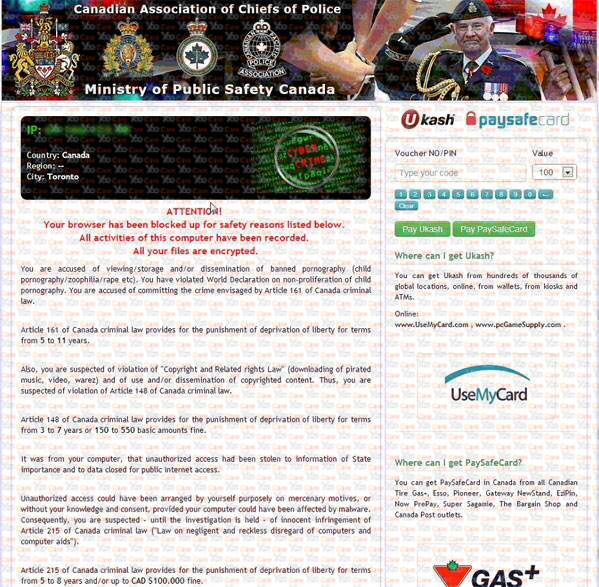
Remove Fake Ministry of Public Safety Canada Block Manually
To unlock your computer from this fake pop up Canadian police message, it takes more than running antivirus checks. As a matter of fact, this virus can escape from most antivirus protection tools and sneak into computers running Windows 7, Windows 8, Windows XP and Vista. Now it can even show up on mac machines blocking browsers. Antivirus applications may even be disabled somehow if this virus cannot be removed from the computer in time. Following are several steps for you to manually remove this scam virus. If you are not confident enough, please backup your important data before making any changes to your computer. Expertise will be required during the manual removal process:
Unlock Ministry of Public Safety Canada Virus on Windows OS:
Step A: Restart the infected computer then keep hitting F8 key on the keyboard when it’s turning up to get safe mode options. Use the arrow keys to highlight “Safe Mode with Networking” and press E/Enter to put the infected computer into this mode first.
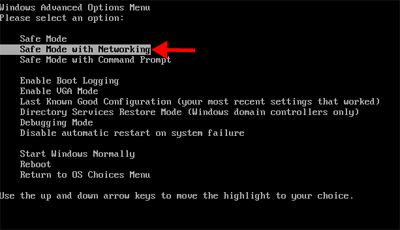
Step B: Press Ctrl+Alt+Del keys together to open Windows Task Manager and then end related processes to this [Ministry of Public Safety Canada].

Step C: Press Windows+R keys to open the Run box and type in regedit to open Registry Editor.
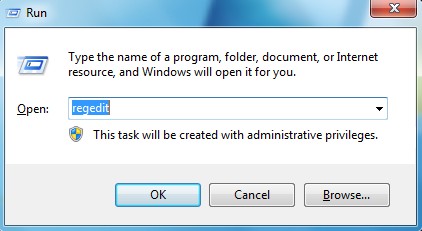
Step D: Find out and delete all these associating files and registry entries as below:
Go to %userprofile%\appdata\local\temp
The virus can have names other than “random.exe” but it should look like it doesn’t belong and should have a create date/time the same as a .class file if you sort by file mod/create time you’ll find it.
Unblock Browser from Canadian Association of Chiefs of Police Virus on Mac OS:
This Ministry of Public Safety Canada virus will attack the Safari browser and other web browsers on Mac machines as well as on Windows computers. Once it’s attacked, Safari will be blocked by this scary Ministry of Public Safety Canada asking for $100CAD fine page and you won’t be able to leave the page. In this case, please click on the Search icon (which looks like a magnifier) on top right corner of Safari browser, type in: Safari to re-open a new tab on browser without this fake Canadian police block page then contact online PC experts for help instantly.

Video Guide On How to Remove Ministry of Public Safety Canada Ukash Scam Malware
Conclusion
The Ministry of Public Safety Canada virus (a.k.a. Canadian Association of Chiefs of Police virus) is a computer ransomware which can block PC users from accessing their computers by a deceitful police message and ask for a certain amount of fine (CAD $100 via Ukash) to unlock the PCs. This is a specific routine for all the ransomware. By threatening PC users that they have violated certain laws of the country, it tries to get as many PC users to pay for the CAD $100 fine as possible. Cyber criminals who create this virus will be receiving this money instead of the police or the country. This ransomware usually can get itself installed on computers without consent from PC users even when there’s antivirus protection. It seems that antivirus protection often fails to prevent this kind of computer virus. Created by cyber criminals with specific purposes, this fake CACP Canadian police warning has the ability to escape from many antivirus applications. Once it’s successfully installed on a computer, it will pop up and completely block the entire screen without letting the user access the machine. Browsers can also be completely blocked by this Ministry of Public Safety Canada Ukash scam on Mac machines lately. And even after the payment is submitted, you will still receive this same block as the virus still hide in the computer deeply. This fake Ukash virus will not stop scamming you until it’s completely removed. Computer screen completely blocked by fake Ministry of Public Safety Canada pop up? Cannot access browsers because CACP virus scam locks the pages? Hesitate no more to unlock computer from Ministry of Public Safety Canada virus.
Note: Cannot locate certain files or entries to delete this ransomware completely? Please contact YooSecurity Online Experts now for further removal assistance if your computer is still being locked by this unwanted pop up message.

Published by Tony Shepherd & last updated on May 22, 2014 1:51 am

